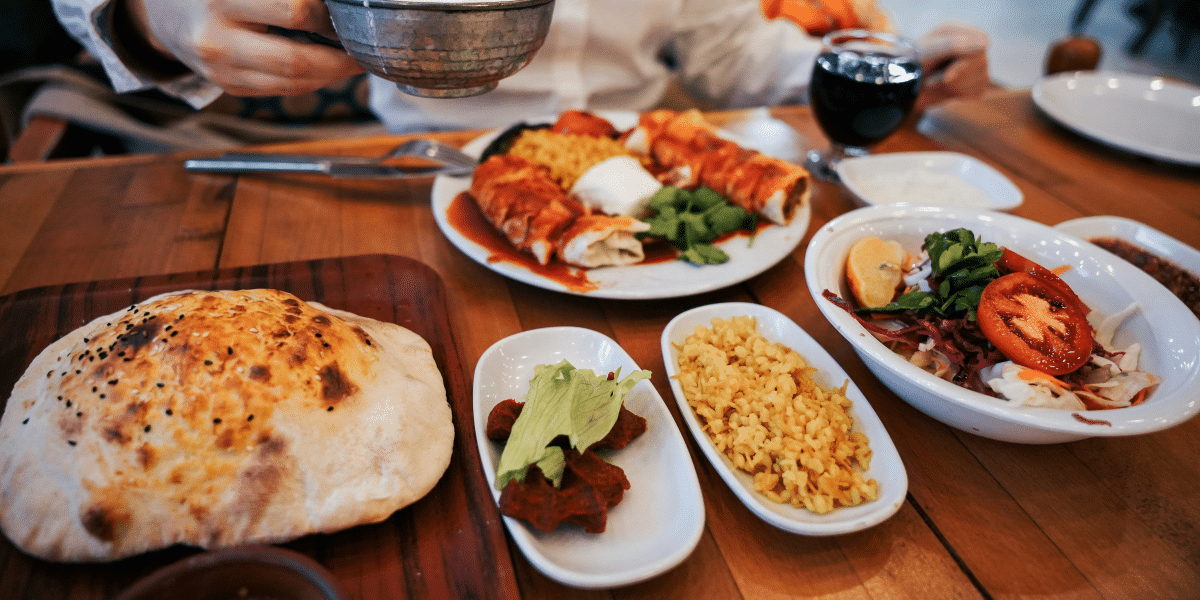Halal-grade food complies with the rules of Islam while also giving non-Islamic people high-quality and hygienic food.
As a business in the food industry, you want to ensure that you are appealing to as many customers as possible while also providing the best quality product on the market.
By ensuring that your product is Halal-certified, whether an individual product or an establishment, you are giving yourself access to a larger target audience and better food quality.
In this article, I’ve outlined five compelling reasons why individuals within the food industry should consider embracing Halal practices.
What Constitutes Halal Food?
Halal-certified food comes from the Islamic religion. Roughly translated to English it can mean “lawful” or “permissible”. It is a guide that food manufacturers need to follow to ensure Muslim people are complying with their religious needs.
Islamic law, or Shariah law, provides certain quality checks that must be maintained for food to be considered Halal.
Following Halal guidelines involves slaughtering animals (except pigs, pork is not Halal) with a clean knife and letting the blood drain completely. Once completed, all food prepared must be done so with clean utensils.
The opposite of Halal is Haram, non-permissible food. These include pork, alcohol, any blood from an animal, and harmful substances such as preservatives, toxins, or additives.
Reasons Why Halal Food is Important in the Food Industry
-
Health and Safety Standards
There is a strict process for food products to be certified Halal. Following Islamic guidelines from food production to packaging, the stringent rules result in extremely hygienic food.
These Halal rules, although seemingly religion-based, ensure the cleanest and safest is being prepared and packaged for society.
By following the strict safety standards that apply to Halal-certified foods, the food industry ensures that the quality of ingredients is incredibly high. These high-quality products benefit not only Muslims but all consumers of Halal products.
-
Rise of Muslim Communities Across the World
Islam is an ever-growing religion. As more Muslims populate different parts of the world, so does Islamic culture penetrate established sectors.
With the rise of global Islamic populations, one of the major sectors that Islamic law or Shariah law affects is the food industry.
In areas of the world such as New York City certifying food as Halal helps businesses in meeting their Islamic customer’s needs. This results in a wider target audience for the food business.
This indicates that locating Halal food in NYC is more convenient and accessible for the Islamic diaspora.
-
Offers Diversity of Cuisines in Restaurants
The food industry welcomes many different flavors and cuisines from around the world. With the global increase in Muslim populations, more and more restaurants are ensuring that their food is Halal certified.
The beauty of Halal-grade food is that it can apply to any cuisine. Because it is a safety certification, the food diversity ranges from African to Middle Eastern to European.
Nowadays, finding Halal-friendly food is simple. For example, a vast selection of food trucks in NYC are Halal-friendly. This means you can eat from your favorite Thai, Italian, Ethiopian, and Middle Eastern places!
-
Halal Practises Expands into Other Industries
Having Halal standards in the food industry affects other industries as well.
The Muslim community in NYC makes up a large portion of the finance industry. This means that restaurants and food establishments that host meetings between brokers and investment bankers need to be Halal certified.
Similarly, businesses that are looking for investments must also practice Halal standards to gain a better chance of receiving a loan.
-
Cultural Respect and Inclusivity
In today’s world, there are many types of people with different habits. At least 24.1% of the global population is Muslim, and with the religion spanning over 50 countries, the food industry needs to ensure they are catering to this sector.
By using a Halal-grade label on your food items or having a Halal-friendly sticker in your restaurant, you are making sure that Muslim people may consume your products.
And don’t worry, these labels won’t scare away current customers. Rather, it stands to increase your profits due to the awareness of Halal certifications. By catering to the Halal market, you not only expand your customer base but also enhance your reputation as a business that values diversity and inclusivity.
Embracing Halal practices can also foster loyalty among existing customers who appreciate your commitment to meeting their dietary needs. Tapping into the Halal market can open doors to new partnerships and collaborations within the diverse culinary landscape of New York City, enriching your business opportunities.
Published by: Khy Talara


















